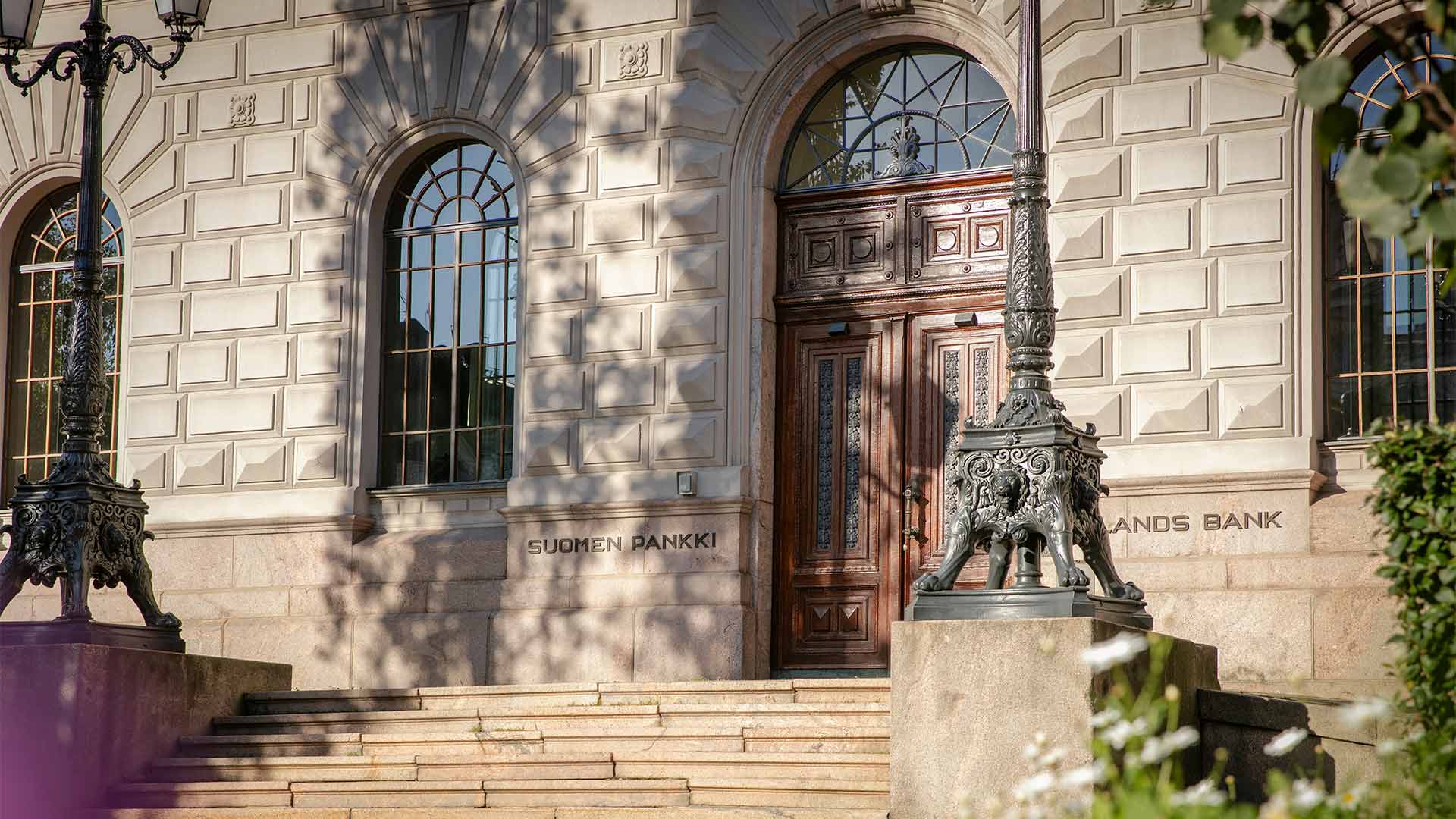Trade policy and the security environment are setting the near-term course for the Finnish economy
The way in which trade policy develops will shape the economic environment. An escalation of the trade war would be a setback for the Finnish economy. Strengthening Europe’s external security will require not only national investment but also common European initiatives. The EU’s new fiscal rules provide the flexibility for higher defence spending, but permanent financing solutions are needed for defence investments.

The Governing Council of the European Central Bank (ECB) last week lowered the key ECB interest rates by 0.25 percentage points. Despite tariffs and threats of tariffs, conditions are still favourable for growth in the euro area economy. “With the rate cut and consistent monetary policy we aim at ensuring that inflation in the euro area stabilises at its 2% medium-term target, and that the economy remains on a growth track. The level of uncertainty continues to underline the importance of taking decisions on a meeting-by-meeting basis. The ECB Governing Council is not pre-committing to a particular rate path but will maintain complete freedom of action in its interest rate decision-making at each future meeting,” said Governor of the Bank of Finland Olli Rehn at the Bank of Finland’s press conference.
To assess the impact of the uncertainty on Finland’s economy, alternative tariff scenarios have been examined. “In the scenario that is less favourable than our baseline forecast, the trade war escalates and the slowdown in Finland’s economy is prolonged. By contrast, in the more favourable – but, in my view, less likely – scenario, conditions in the global economy are strengthened by a decrease in the level of tariffs and by the fading of uncertainty, which would support Finland’s exports as well as private investment and consumption,” says Rehn.
Stronger defence requires permanent financing solutions
Russia’s war in Ukraine and the United States’ shift in foreign policy make it clear that Europe has to strengthen its common defence capability. “With common European defence solutions and procurements, we will be able to increase production capacity and reduce the unit cost of production by scaling up, instead of prices being pushed up by higher demand,” emphasises Rehn. The EU’s aim is to expand its own defence procurement and the capacity of its defence industry. The impact of the higher defence spending on Finland’s economic growth in the immediate years ahead will depend on how large a share of the procurements can be made in Finland and the euro area.
The additional leeway which activation of the escape clause in the EU’s fiscal framework would bring is intended for exceptional circumstances. “The increased financing need for defence is permanent or at least very long term. If defence spending remains high beyond 2029, then to ensure debt sustainability it will be essential to have durable financing through permanent tax increases or by cutting other public expenditure,” says Rehn.
Fiscal sustainability must be ensured
The new EU fiscal rules introduced last year were necessary, but the new framework will have to be applied in an exceptionally difficult situation. “When we reform our own national fiscal policy framework, we should focus not on what the EU rules compel us to do, but on how we ourselves are able to ensure our own fiscal sustainability,” says Rehn. “In these efforts it would be useful to look at Sweden, which has managed better than we have. Its fiscal framework is based on an adequate legislative backdrop and broad parliamentary consensus.”